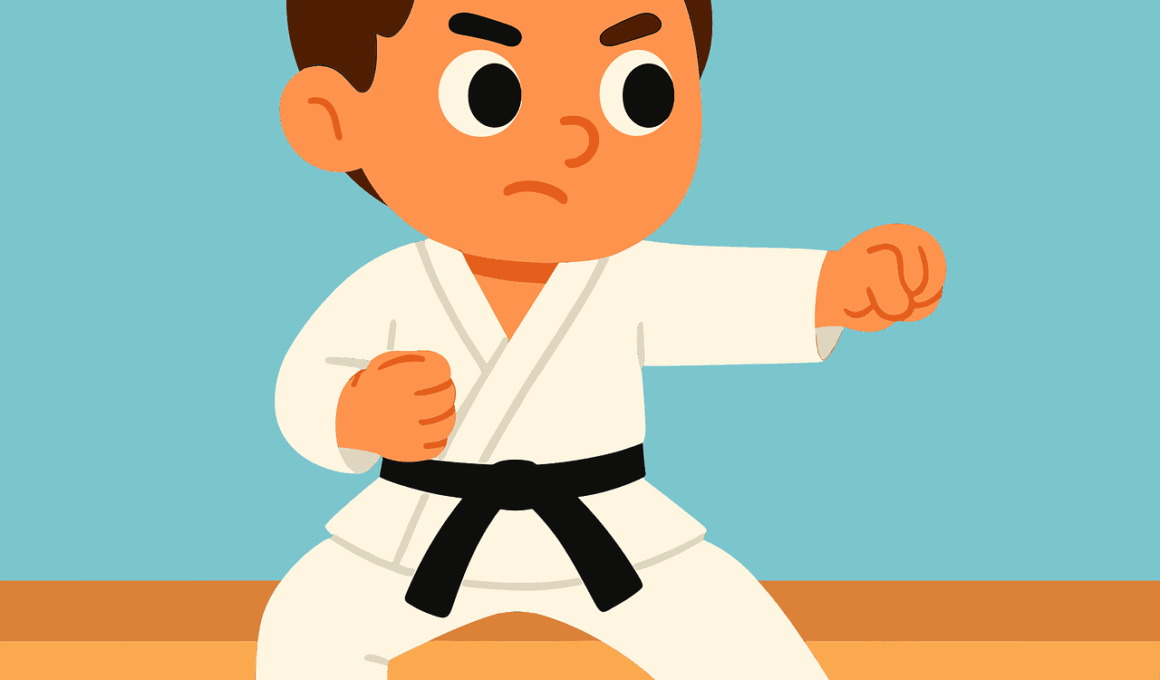Silat for Kids: Building Confidence and Discipline
Silat, a traditional martial art originating from Southeast Asia, serves as an engaging activity for children, enhancing their physical fitness while imbuing them with vital life skills. This dynamic martial art encompasses various styles and techniques that teach children not only defensive skills but also respect, discipline, and focus. Participation in Silat helps children develop confidence as they learn to master different moves and practices over time. The journey of learning is not only about physical combat but also about cultivating mental resilience. This mental aspect, paired with the physical training in Silat, helps children improve their concentration levels significantly. Moreover, children gain the ability to handle conflicts and challenging situations more effectively. More than simply a sport, Silat teaches critical lessons in teamwork and camaraderie; students often train alongside peers, fostering friendships built on mutual support. In addition to personal growth, Silat forms a sense of community, motivating children to connect with others sharing similar interests. Integrating Silat into a child’s routine contributes to a lifetime of discipline, confidence, and camaraderie, making it a valuable practice for any aspiring martial artist.
Building confidence in children is essential for their development, and Silat provides a structured environment that fosters this aspect. As kids progress in their training, they experience tangible improvements in their skills, leading to a sense of accomplishment that boosts their self-esteem. With each milestone, whether it’s mastering a particular technique or participating in a sparring session, students learn to set and achieve goals, which is crucial for their personal growth. Additionally, as children practice Silat, they are often required to perform in front of peers or instructors, further enhancing their public speaking and presentation abilities. This exposure to being in the spotlight helps them to be more comfortable with themselves and their abilities. The supportive nature of Silat classes encourages positive reinforcement from instructors and peers alike, which bolsters their self-confidence even more. Furthermore, the discipline involved in training—such as following instructions and respecting opponents—instills a sense of responsibility and self-control in young practitioners. These vital traits nurture an environment where children feel empowered to face challenges with a positive mindset. Thus, Silat martial arts provide essential ingredients for building strong, confident individuals.
Self-discipline is another core benefit children derive from training in Silat. From the very onset of their martial arts journey, young practitioners learn to follow routines and adhere to rules established by their instructors. This adherence teaches them the importance of commitment, whether they are executing a technique or fulfilling their training responsibilities. Silat training often involves rigorous practice schedules, requiring students to manage their time effectively. This improves their organizational skills, as balancing schoolwork with martial arts training can be a challenge. The discipline to show up consistently, despite other temptations, is a skill that transcends the dojo and impacts their everyday life. Children are also taught to respect their instructors and fellow students, understanding that respect is essential in both martial arts and life. The values learned in Silat help children approach challenges with determination and a firm resolve. Lessons learned in discipline and respect are woven into every class and practice session, preparing them for the pressures of life outside martial arts. In this manner, Silat becomes a valuable avenue for instilling lifelong lessons in self-discipline and commitment in children.
Promoting Physical Fitness
Engaging in Silat promotes physical wellness in children by encouraging a healthy, active lifestyle. The dynamic movements involved in the martial art enhance agility, coordination, and overall strength in young practitioners. As children practice footwork, stances, and forms, they significantly improve their physical fitness levels, which is critical in combating issues such as obesity and lethargy. Kids learn to appreciate physical activity as a fun, exciting part of their routine, promoting lifelong habits of exercise and health. Lessons in Silat also focus on flexibility, balance, and endurance, which are essential for overall athletic performance. Regular practice challenges kids, helping them to push their physical limits in a safe environment. As children become more physically competent through Silat, they often experience increased energy levels and improved mood, as physical activity releases endorphins known to enhance emotional well-being. Additionally, learning self-defense skills provides a sense of empowerment, ensuring children not only feel physically strong but also secure in their abilities. Furthermore, a physically fit child is more likely to excel in school, as studies show that exercise positively impacts cognitive performance and concentration, illustrating the multifaceted benefits of Silat.
Social skills are paramount to a child’s development, and Silat is not just about strikes and kicks; it fosters social interaction and cooperation among participants. In classes, children train in pairs or small groups, promoting teamwork as they help one another learn techniques and improve their skills. This collaborative approach allows children to develop friendships, enhancing their social network and emotional connections. Silat training is typically characterized by mutual respect and encouragement, which cultivates a constructive and positive atmosphere. As they engage with peers in a supportive environment, children learn vital skills such as communication, empathy, and conflict resolution. These qualities are fundamental to forming relationships and navigating social situations throughout their lives. Furthermore, participating in competitions or demonstrations allows kids to showcase their skills and receive feedback in a communal setting, further building their social understanding. With trained instructors facilitating group dynamics, children learn to celebrate successes and support each other during challenges. Such positive reinforcement shapes them into socially adept individuals, prepared to face the world confidently. Thus, Silat becomes a powerful medium through which children can grow socially while fostering a strong sense of community.
Enhancing Mental Focus
Martial arts, including Silat, require intense concentration and focus, helping children enhance their cognitive skills. In the fast-paced environment of training, youngsters learn to direct their attention effectively, filtering out distractions. This vital aspect of training not only assists in martial arts but also translates to improved academic performance and daily life tasks. As children grasp complex movements and techniques, they engage their minds actively, boosting their memory retention and problem-solving skills. The structured classes encourage discipline in concentration, requiring practitioners to listen attentively and execute what they have learned. By focusing on their movements and techniques, children begin to develop patience and perseverance, virtues that are essential in overcoming obstacles both on and off the mat. Mental clarity gained through Silat training fosters a naturally improved sense of determination, empowering children to tackle challenges head-on. As they encounter setbacks in training, learning to overcome those hurdles builds mental toughness, another pivotal aspect of their cognitive and emotional development. Hence, Silat stands not only as a physical pursuit but as an enriching journey for young minds, cultivating the emerging focus necessary for life’s journey.
Incorporating Silat into a child’s routine offers numerous avenues for growth, but safety must always be a priority in martial arts training. Ensuring that classes are led by qualified instructors who promote safe practices is crucial. Parents should seek schools or programs that emphasize safety protocols, providing a secure environment for their children. Training should equip kids with skills to protect themselves while understanding the importance of using those skills responsibly. Common safety measures include wearing appropriate protective gear, learning techniques designed to minimize injury risk, and practicing under controlled conditions. Engaging in supervised sparring sessions allows participants to practice real-world skills without compromising safety. With an emphasis on respecting others and practicing self-control, children learn valuable lessons about conflict resolution. Moreover, instructors often highlight the importance of listening to one’s body, reinforcing the value of self-awareness and self-care. By instilling these principles, Silat not only offers physical training but also prepares children for safely navigating life’s challenges. Ultimately, safety should remain at the forefront, ensuring that every child experiences the joy of learning Silat in a secure setting, fostering lifelong skills and memories.
In conclusion, Silat for kids is a profound journey that encompasses building confidence, discipline, mental focus, social skills, and physical fitness. Young practitioners engage in a holistic learning experience that prepares them for the challenges of life while instilling a sense of community. As they progress through their training, children are empowered to overcome obstacles, remain disciplined, and develop healthy relationships with peers. The respect and camaraderie fostered in Silat promote a supportive environment unique to martial arts. Not only does Silat serve as a means of self-defense, but it empowers children to embrace the challenges of life. Parents are encouraged to consider involving their children in Silat classes to provide them with lifelong skills that promote confidence, discipline, and teamwork. Finding a qualified instructor or community program can set the foundation for a supportive journey in martial arts. Through Silat, children discover more than just martial techniques; they learn about life lessons that carry over into their personal growth. Thus, Silat offers a well-rounded path towards becoming not just skilled martial artists but also resilient, socially adept individuals ready to face the world.


